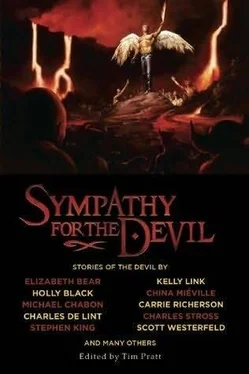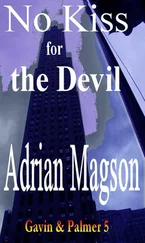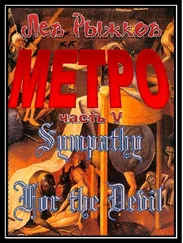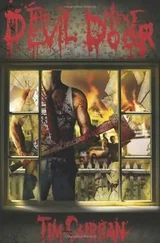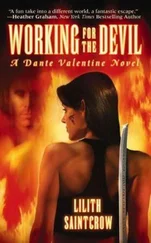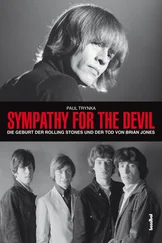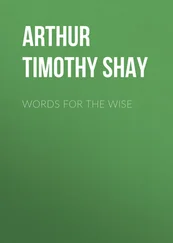“Damn you, Ganz,” I said, though I was not in truth addressing the poor fellow, who, I knew, would not be able to answer my question anytime soon. “What’s a dead clown doing in my woods?”
We found no wallet on the corpse, nor any kind of identifying objects. My men, along with the better part of the Ashtown Police Department, went over and over the woods east of town, hourly widening the radius of their search. That day, when not attending to my other duties (I was then in the process of breaking up the Dushnyk cigarette-smuggling ring), I managed to work my way back along a chain of inferences to the Entwhistle-Ealing Bros. Circus, which, as I eventually recalled, had recently stayed on the eastern outskirts of Ashtown, at the fringe of the woods where the body was found.
The following day, I succeeded in reaching the circus’s general manager, a man named Onheuser, at their winter headquarters in Peru. He informed me over the phone that the company had left Pennsylvania and was now en route to Peru, and I asked him if he had received any reports from the road manager of a clown’s having suddenly gone missing.
“Missing?” he said. I wished that I could see his face, for I thought I heard the flatted note of something false in his tone. Perhaps he was merely nervous about talking to a county district attorney. The Entwhistle-Ealing Bros. Circus was a mangy affair, by all accounts, and probably no stranger to pursuit by officers of the court. “Why, I don’t believe so, no.”
I explained to him that a man who gave every indication of having once been a circus clown had turned up dead in a pinewood outside Ashtown, Pennsylvania.
“Oh, no,” Onheuser said. “I truly hope he wasn’t one of mine, Mr. Satterlee.”
“It is possible you might have left one of your clowns behind, Mr. Onheuser?”
“Clowns are special people,” Onheuser replied, sounding a touch on the defensive. “They love their work, but sometimes it can get to be a little, well, too much for them.” It developed that Mr. Onheuser had, in his younger days, performed as a clown, under the name of Mr. Wingo, in the circus of which he was now the general manager. “It’s not unusual for a clown to drop out for a little while, cool his heels, you know, in some town where he can get a few months of well-earned rest. It isn’t common, I wouldn’t say, but it’s not unusual. I will wire my road manager-they’re in Canton, Ohio -and see what I can find out.”
I gathered, reading between the lines, that clowns were high-strung types, and not above going on the occasional bender. This poor fellow had probably jumped ship here two weeks ago, holing up somewhere with a case of rye, only to run afoul of a very nasty person, possibly one who harbored no great love of clowns. In fact, I had an odd feeling, nothing more than a hunch, really, that the ordinary citizens of Ashtown and its environs were safe, even though the killer was still at large. Once more, I picked up a slip of paper that I had tucked into my desk blotter that morning. It was something that Dr. Sauer had clipped from his files and passed along to me. Coulrophobia: morbid, irrational fear of or aversion to clowns.
“Er, listen, Mr. Satterlee,” Onheuser went on. “I hope you won’t mind my asking. That is, I hope it’s not a, well, a confidential police matter, or something of the sort. But I know that when I do get through to them, out in Canton, they’re going to want to know.
I guessed, somehow, what he was about to ask me. I could hear the prickling fear behind his curiosity, the note of dread in his voice. I waited him out.
“Did they-was there any-how did he die?”
“He was shot,” I said, for the moment supplying the least interesting part of the answer, tugging on that loose thread of fear. “In the head.”
“And there was… forgive me. No… no harm done? To the body? Other than the gunshot wound, I mean to say.”
“Well, yes, his head was rather savagely mutilated,” I said brightly. “Is that what you mean to say?”
“Ah! No, no, I don’t-”
“The killer or killers removed all the skin from the cranium. It was very skillfully done. Now, suppose you tell me what you know about it.”
There was another pause, and a stream of agitated electrons burbled along between us.
“I don’t know anything, Mr. District Attorney. I’m really sorry. I really must go now. I’ll wire you when I have some-”
The line went dead. He was so keen to hang up on me that he could not even wait to finish his sentence. I got up and went to the shelf where, in recent months, I had taken to keeping a bottle of whiskey tucked behind my bust of Daniel Webster. Carrying the bottle and a dusty glass back to my desk, I sat down and tried to reconcile myself to the thought that I was confronted-not, alas, for the first time in my tenure as chief law-enforcement officer of Yuggogheny County-with a crime whose explanation was going to involve not the usual amalgam of stupidity, meanness, and singularly poor judgment but the incalculable intentions of a being who is genuinely evil. What disheartened me was not that I viewed a crime committed out of the promptings of an evil nature as inherently less liable to solution than the misdeeds of the foolish, the unlucky, or the habitually cruel. On the contrary, evil often expresses itself through refreshingly discernible patterns, through schedules and syllogisms. But the presence of evil, once scented, tends to bring out all that is most irrational and uncontrollable in the public imagination. It is a catalyst for pea-brained theories, gimcrack scholarship, and the credulous cosmologies of hysteria.
At that moment, there was a knock on the door to my office, and Detective Ganz came in. At one time I would have tried to hide the glass of whiskey, behind the typewriter or the photo of my wife and son, but now it did not seem to be worth the effort. I was not fooling anyone. Ganz took note of the glass in my hand with a raised eyebrow and a school-marmish pursing of his lips.
“Well?” I said. There had been a brief period, following my son’s death and the subsequent suicide of my dear wife, Mary, when I had indulged the pitying regard of my staff. I now found that I regretted having shown such weakness. “What is it, then? Has something turned up?”
“A cave,” Ganz said. “The poor bastard was living in a cave.”
The range of low hills and hollows separating lower Yuggogheny from Fayette County is rotten with caves. For many years, when I was a boy, a man named Colonel Earnshawe operated penny tours of the iridescent organ pipes and jagged stone teeth of Neighborsburg Caverns, before they collapsed in the mysterious earthquake of 1919, killing the Colonel and his sister Irene, and putting to rest many strange rumors about that eccentric old pair. My childhood friends and I, ranging in the woods, would from time to time come upon the root-choked mouth of a cave exhaling its cool plutonic breath, and dare one another to leave the sunshine and enter that world of shadow-that entrance, as it always seemed to me, to the legendary past itself, where the bones of Indians and Frenchmen might lie moldering. It was in one of these anterooms of buried history that the beam of a flashlight, wielded by a deputy sheriff from Plunkettsburg, had struck the silvery lip of a can of pork and beans. Calling to his companions, the deputy plunged through a curtain of spiderweb and found himself in the parlor, bedroom, and kitchen of the dead man. There were some cans of chili and hash, a Primus stove, a lantern, a bedroll, a mess kit, and an old Colt revolver, Army issue, loaded and apparently not fired for some time. And there were also books-a Scout guide to roughing it, a collected Blake, and a couple of odd texts, elderly and tattered: one in German called “Über das Finstere Lachen,” by a man named Friedrich von Junzt, which appeared to be religious or philosophical in nature, and one a small volume bound in black leather and printed in no alphabet known to me, the letters sinuous and furred with wild diacritical marks.
Читать дальше
